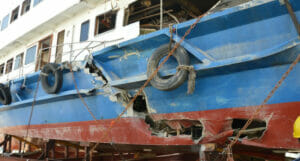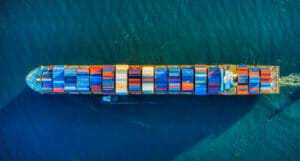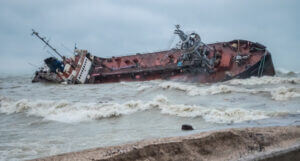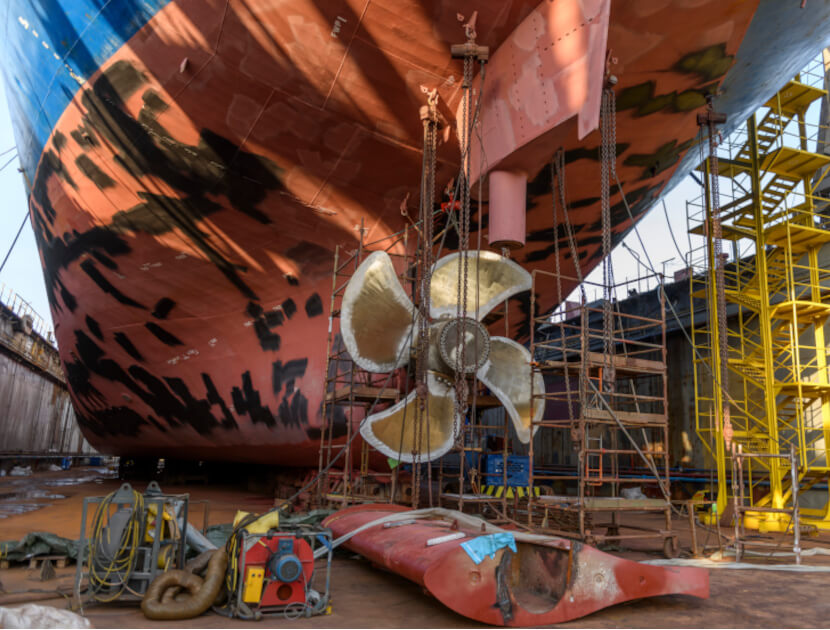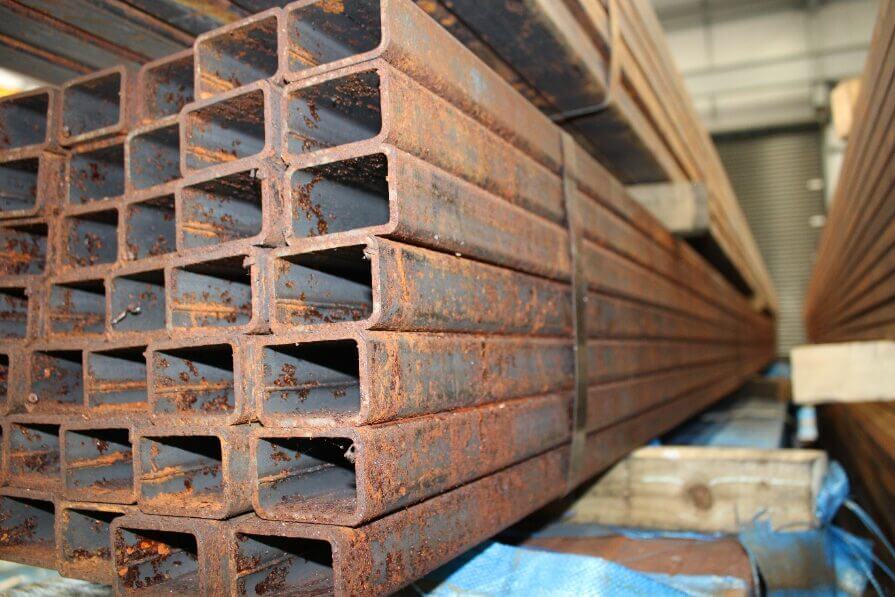Various accidents at sea can potentially affect a vessel’s integrity including ship collisions, grounding, overloading and corrosion, all of which can cause damage to the ship’s hull and its associated working components such as the rudder and the propeller.
To fully understand the nature and circumstances of hull damage, a physical inspection by an experienced investigator on site is critical, and it must be done as soon as possible after the damage is reported, to preserve the evidence and ensure that no damage-features are compromised. At Hawkins we have failure analysts who can investigate the cause of such damage through visual examination on site and, if permissible and feasible, laboratory inspections of material samples. Once the material damage is assessed and the failure mode apparent, our investigators can piece together the sequence of events leading up to the incident.
Our experts are qualified engineers and scientists, familiar with investigating engineering failures across all sectors. We have detailed knowledge of mechanical and electrical hardware, materials, processes, transport, construction and chemicals.
WHY APPOINT A FORENSIC INVESTIGATOR?
We have the technical knowledge and experience to decipher the circumstances leading to a hull failure, advise on the next best steps, and how to prevent this type of incident from occurring again.
- We have an in-depth knowledge of the regulations and guidance that should be followed by technicians and engineers who are involved with ship-building.
- We review working practices and Classification Society requirements to identify areas at high risk of a fault.
- We offer guidance and/or help you define and develop good working procedures and practices to reduce the risk of hull failures occurring.
- We provide you with the answers you need to determine why an incident occurred and so assist in repudiation/cover decisions and fraud identification.
- Our experts are knowledgeable in a wide range of areas pertaining to hull damage and can investigate all aspects of an associated failure, meaning that you may only need to instruct one expert, rather than several.
- We liaise with independent laboratories who are proficient in examining damaged materials, should samples be taken.
- We support subrogation/recovery efforts.
- We help you to make decisions regarding where legal responsibilities/liabilities lie.
- We help you to defend wrongful claims.
- We produce reports suitable for Court and litigation.
- We provide consultancy advice to prevent similar events happening again in the future.
- If removing a risk entirely is unavoidable, we advise on steps to take to mitigate the risk and reduce the potential damage resulting from an incident.
- We advise on servicing, maintenance and repair regimes.
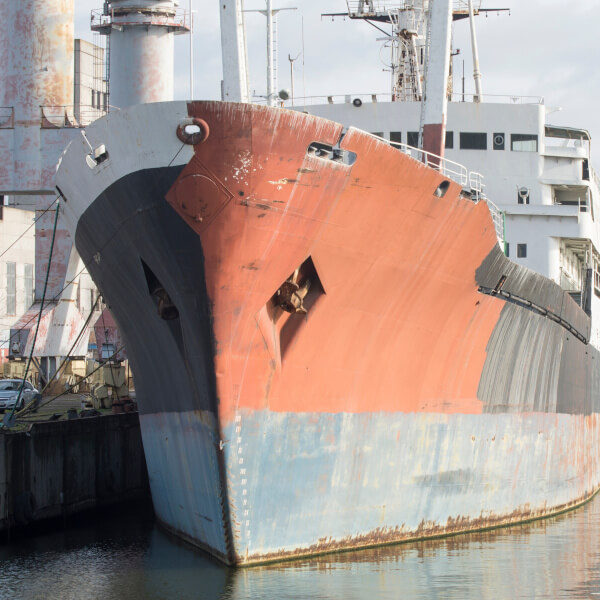
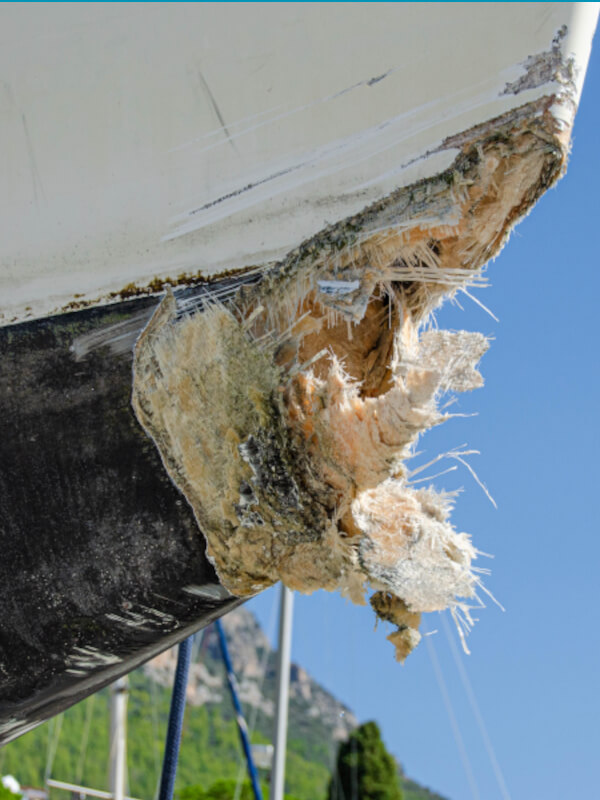

Examples of Typical cases
If you would like more information or to discuss a specific incident, you can contact us for a free consultation. The list below provides just a few examples of the type if incidents that we have investigated.
- Impact damage to hull
- Detachment of rudder
- Progressive cracking of rudder horn
- Corrosion damage to hull
- Corrosion and/or cavitation damage to propeller
- Grounding damage to hull
HOW DOES HAWKINS INVESTIGATE ENGINEERING FAILURES AND LOSSES?
1
Consultation
We like to speak to you before we conduct any work, to establish how we can add any value to the case. These discussions help us to understand your requirements, as well as determining how much information is already available, including for example, service records, first-hand witness accounts, photographs, and videos. We are also happy to provide you with an estimate of the cost of conducting a forensic investigation.
2
Inspection
If required and with your agreement, we will arrange to visit the vessel to inspect the reported damage. Wherever possible, we will retain some material samples for examination and analysis at an independent, third-party laboratory so that we can assess the nature and circumstances of the failure using low and high magnification microscopy and, if necessary, chemical tests.
3
Conclusion
Once our examination is complete, we will discuss our findings with you and prepare a report containing a detailed account of our investigation, conclusions, and where appropriate, further work or advice.
SPEAK TO ONE OF OUR EXPERTS
Principal Associate, Managing Director (Acoustics)
Email meRelated areas of expertise
Marine Engineering
The maritime and offshore engineering industry encompasses a wide range of disciplines and any incidents or losses can be complex in nature.
Marine
Hawkins has established a highly qualified team of scientists and engineers who can provide assistance with a wide range of marine incidents ranging from fire and explosion investigations, cargo problems and advice on dangerous goods, through to materials failure analysis and corrosion on board.
Marine Coating Failures
Marine coatings are used to protect the external surfaces of the ship in addition to the internal surfaces of the cargo holds/tanks, and are applied to protect the underlying steel from abrasion and corrosion.
Salvage & Wreck
In maritime law, salvage is the rescue of a ship or its cargo on navigable waters from a peril that, except for the rescuer’s assistance, would have led to the loss or destruction of the property. At Hawkins, we have a unique appreciation of the importance of this type of crisis management and the need for risk and cost mitigation throughout a salvage or wreck removal case.



